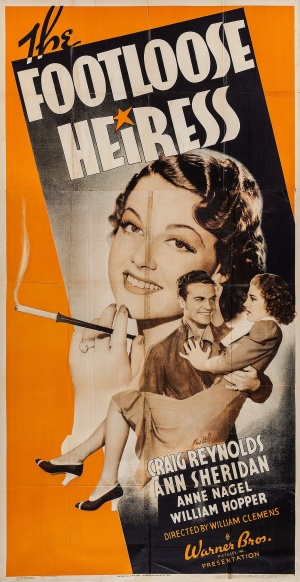 A successful movie will necessarily have its imitators, and it would be disingenuous to claim The Footloose Heiress (1937) was anything but a quickie knock-off of the incredibly popular My Man Godfrey released less than six months prior. Yet rather than simply steal from the better, earlier film, Heiress borrows one aspect and essentially riffs on it, creating an almost fanfic-ish what-if scenario of a Godfrey world where the spoiled heiress gets her just and true comeuppance in the form of a sexually violent stranger.
A successful movie will necessarily have its imitators, and it would be disingenuous to claim The Footloose Heiress (1937) was anything but a quickie knock-off of the incredibly popular My Man Godfrey released less than six months prior. Yet rather than simply steal from the better, earlier film, Heiress borrows one aspect and essentially riffs on it, creating an almost fanfic-ish what-if scenario of a Godfrey world where the spoiled heiress gets her just and true comeuppance in the form of a sexually violent stranger.
Craig Reynolds is Bruce “Butch” Baeder, one of those so-called hobos that were so popular in films of the late 1930s and early 1940s. Calling himself a “forgotten man” and immediately ingratiating himself with the first rich guy he sees — beleaguered ad exec John Allyn (Hugh O’Connell) — Butch is the magical Godfrey-esque answer to the wealthy Allyn family’s problems.
And the problems are all allegedly the doing of willful teen daughter Kay (Ann Sheridan). Despite Mr. Allyn’s job difficulties — and despite his obvious incompetence at absolutely everything, all the time, without exception — Kay is considered the true troublemaker in the family. Truth be told, she does little to dissuade anyone of that opinion, engaging in the typical rich girl rebellious shtick that Hollywood had a mad love affair with during its Golden Age. The daughter, already called Kay “Madcap” Allyn by a press familiar with her antics, decides on her 18th birthday to engage in more madcappery and marry the decidedly non-wealthy Jack Pierson (played by William Hopper, son of Hedda and DeWolfe Hopper, known for his later role as Perry Mason’s right-hand man on the long-running TV show). Kay’s father forbids her from marrying a poor man, so he enlists the police to stop her, because the police are there for no other reason than to maintain the status quo for the rich.
Kay speeds toward a nearby small town justice of the peace, hoping to get there before midnight so she can win a $5,000 bet made by her pals Charley and his girlfriend Linda, Jack’s sister. With her father in hot pursuit, Kay just barely misses driving directly into a train. Jack says that a few more inches and they would have been under the freight car…
“Another inch and we would have been what’s in that freight car!” quips Kay, and they all laugh, because being a mangled corpse caught up in the wheels of a train, with your father sure to see and the engineer having to live with that the rest of his life, is high-larious.
It’s an especially tasteless joke considering actress, stuntwoman and stand-in Marcella Arnold was killed as the shots for this scene were completed, when a car driven by stuntman Gorden Careth flipped over on top of her after taking a sharp turn. It’s likely the specific stunt that killed Arnold was for a scene where three of Kay’s friends are following her in their own car. The friends’ car disappears after one brief bluescreen moment showing them chasing after Kay, with no explanation as to where the friends have gone. The rest of the scene was probably cut after the accident; in fact, it would seem Arnold’s death contributed to The Footloose Heiress’ remarkably short run time of just under one hour.
To metaphorically rewind a bit, I want to point out that the first person to appear on the screen in TFH is none other than Edwin “Dr. Mallory” Stanley of Phantom Creeps infamy. As the president of Century Oil, he browbeats the useless John Allyn, an ad exec who, in 1937, says that radio ads are simply not effective. I guess this was supposed to be funny, but if the Keanu Reeves advertising meltdown in Sweet November (2001) is any indication, advertising humor is lost on me.
Edwin Stanley is not a particularly good actor, but in Heiress, no one is a particularly good actor. Craig Reynolds is an exceptional offender, often defaulting to a bland, pleasant look that changes when the dialogue eventually cues him in as to what is going on at the moment, and twice he can be seen glancing directly at the camera (or whoever is near the camera that he is waiting for cues from). Though Sheridan fares better in this regard, neither had much of an excuse, both having been in over 30 films in the previous three years. Sheridan had spent most of her time in uncredited chorus girl roles, while Reynolds was frequent supporting actor, such as in a few of the Perry Mason flicks and a couple of Bette Davis vehicles.
Edwin Stanley, like the other older, supporting actors in Heiress, fares better because of the one-dimensionality of their characters. They have one thing to bring to the film, so they have the luxury of planting their feet, saying their lines and delivering that one thing, whether it’s bluster or foppishness or frustration.
Yet moments like this with Reynolds caught looking at the camera self-consciously are inexcusable. Reynolds was capable of a much better performance than what he gave in Footloose Heiress, but I also have to wonder why another take wasn’t done, or why editing didn’t choose a better take. Films are collaborative, and everyone at Warner Bros. assigned to this film should have made sure that basic film needs were met: Film in the camera, electricity bill paid, sets that wouldn’t fall over during a take, and not using footage of an actor accidentally glancing at the camera in the final print.
Footloose Heiress establishes early on that Kay and her friends are jerks, her father is incompetent, and it’s a horrible thing if an 18-year-old woman marries who she wants, and once that’s all settled, it’s the perfect time to introduce Butch, the hobo literally riding the rails of the train Kay almost runs into. When she speeds off, her father, who has caught up with her momentarily, loses his balance and falls onto the tracks, the wheels of the train nearly crushing him.
It’s the best special effect from this era I’ve ever seen: A bluescreen train lined up perfectly with actual tracks on a soundstage, and the impeccable timing of Butch pulling Mr. Allyn off the tracks just before the wheels would have crushed him. It’s impossible not to cringe at Allyn’s near demise; this spectacularly well-done scene gave me high hopes for the film, and in retrospect, engendering hope seems like a cruel trick indeed.
Butch, who knows nothing about the Allyn family or Mr. Allyn or Kay, immediately takes control of Mr. Allyn’s car and sets off in pursuit of Kay and her friends. When he arrives at the justice of the peace, he stops the wedding by pretending to already be married to Kay, a stunt Mr. Allyn plays along with.
Kay is livid, which is portrayed as a spoiled brat having a snit, though common sense says any woman faced with her father telling a county official that she’s married to a total stranger would be cause for alarm, regardless of whether she’s “madcap” or “spoiled” or not. But Kay is smart, so she quickly plays along, and even goes home with her father and Butch, announcing she’s about to put on “something more comfortable” and wait upstairs for her “husband.”
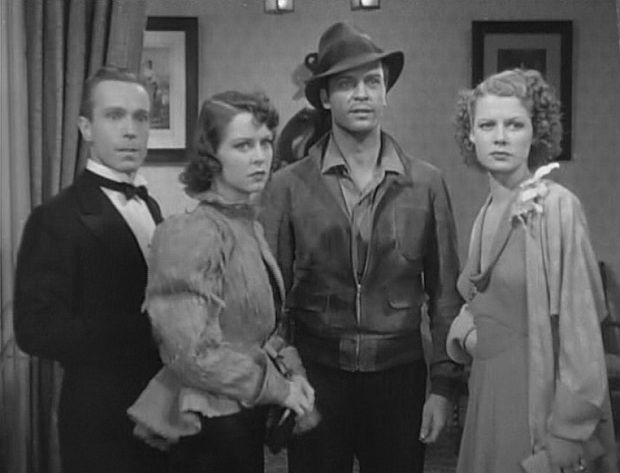 “Can someone explain to me why Indiana Jones just crashed my wedding?”
“Can someone explain to me why Indiana Jones just crashed my wedding?”
Heiress makes not a single mention of the trope, but its plot relies heavily on the implication that a woman in a hurry to wed is a woman in a hurry to have sex. Kay’s sly gambit to get back at her father for his rather disturbing behavior is based entirely on that premise, and it is an impressive move on her part. Little did she know that Butch was willing to commit sexual assault against her just to teach her a lesson, and able to convince her sociopathically stupid father that it was a good idea.
Butch heads to Kay’s bedroom, telling Mr. Allyn to not come upstairs even if Kay screams. He strolls into her bedroom, eyes signalling that he is intent on exercising his husbandly rights. She orders him out but he won’t leave; she screams for her father, but he never arrives. At first she throws things at Butch to get him to leave, a referential and supposedly comedic Taming of the Shrew moment, but Butch crouches down and dodges from chair to couch to table, slowly advancing his way toward his target, his leering, sharp teeth bared.
When he announces her father isn’t coming because he’s incapacitated him in some way, Kay is clearly terrified. Butch grabs her and, stonefaced, carries her to her daybed.
She cries and begs, and asks him to stop.
He throws her on the lounge and watches her cry…
…until a noise at her door startles him. It’s her father, listening at the doorknob. Butch announces his work here is done as Kay cries harder, then pitches a fit by literally falling to the floor and stamping her feet.
Butch and Mr. Allyn toast to their success.
That night, Butch stays at the house and gets up bright and early to disable Kay’s car so she is left without any way to leave the house. At first laughing when she begins to throw all the parts he’s stripped out of her car, he eventually attacks her to stop her.
She calls friends to come get her so she can leave, at which point Butch phones the papers and announces he and Kay were secretly married. Kay discovers this at a party she attends with her boyfriend Jack; for reasons unexplained, Jack’s sister Linda has brought Butch as her date, and when her brother and Kay try to announce to the party that the marriage is a lie concocted by Butch, Linda narcs on them, giving Butch time to stop the announcement…
…with a spanking.
Warner Bros. sent out releases masquerading as movie reviews to newspapers across the country; this PR was also sent to magazines, and always focused on the spanking scene, which Warners touted as akin to the grapefruit incident in The Public Enemy. In papers like the Prescott Evening Courier, glowing praise of The Footloose Heiress crowed about the Butch character making “a nice, normal person out of” Kay, noting the spanking scene took several takes, “and the fair Miss Sheridan didn’t forget it for a week.”
Kay is, of course, in love with Butch at this point, and the rest of the film tracks her pursuit of him. He has become an invaluable member of the household, helping Mr. Allyn with his Century Oil ad campaign, having been a successful ad exec in his father’s business until he decided he didn’t like receiving criticism. When his father didn’t approve of some work he had done, he ran off to ride the rails in a sulk like a spoiled little diva, never contacting his family or simply going to work for another ad company or anything of the sort. His behavior is seen as comedic but understandable, while Kay’s behavior is not, and when he gets mad at the Allyns he just runs off again, forcing Kay to run after him.
Make no mistake: No matter how it sounds, The Footloose Heiress is played completely for laughs. That is intentional, not because Warner Bros. was particularly looking for a comedy, but because someone, perhaps writer Robertson White, wanted to create a story about violent sexual conquest and knew it could not be done unless heavily couched in humor. Perhaps they knew it had to be a comedy and a rip-off, twin distractions in the vein of Dashiell Hammett’s “gooseberry lay,” a term elided by morality-minded editors at Black Mask Magazine, and which Hammett deliberately used to distract them from the truly naughty word “gunsel” later in his story.
Screenwriter Robertson White wrote very few films during his time in Hollywood. His best known is the John Farrow flick My Bill starring Kay Francis, though he also wrote Mystery House (1938), one of Anthony “Henchman Clooney” Averill’s first films. It appears none of his other films have the psychosexual edge to them that Heiress does, and one wonders if this was the product of inspiration, a request from the studio, or one of those accidental Mickey “mud bed” Spillane moments where all manner of Freudian wonders unconsciously bubbled their way into his writing.
Reynolds, though, was surely cast because of the inherent villainy he brought to the table. His entire career was spent in supporting roles in B-list films, usually as a villain, often a comedic one. “I’ve become so used to being a meanie,” he told a magazine during publicity for Heiress, “that I have to watch myself in love scenes with Ann Sheridan to keep myself from snarling and grabbing her in true villain style.”
If there is even one scene where he “watched himself,” it was left on the cutting room floor. At every moment he is dismissive, hostile, physically attacking her, sneering, leering, or plotting with her father to do something heinous under the guise of teaching a spoiled girl a lesson.
It’s unlikely there was any attempt to tone down Reynold’s innate hostility, because the entire movie is hostile, with insults lobbed not just at women but the poor, the rich, advertisers, the law, the young, the old, just about anyone. The misanthropy of the film spilled into production, where lobby cards may have highlighted the cuddly bits, but publicity focused on Sheridan’s physical injuries and Reynold’s “true villain style.” Crude jokes were made during a scene that killed a stuntwoman, and only the bare minimum of editing done to work around her death.
The Footloose Heiress is an astonishing example of the divide between reality and cinema during Hollywood’s Golden Age, of the power of unconscious desires, of the frequent link between sexual attraction and sadism. While it was not the first film to cast a young woman as the true evil of the dominant rich — a girl’s independence and sexuality being seen as more dangerous than the necessarily ruthless business deals that made her an heiress in the first place — The Footloose Heiress is one of the only films to dare suggest that sexual and physical abuse were the proper punishments for a rich girl’s folly.

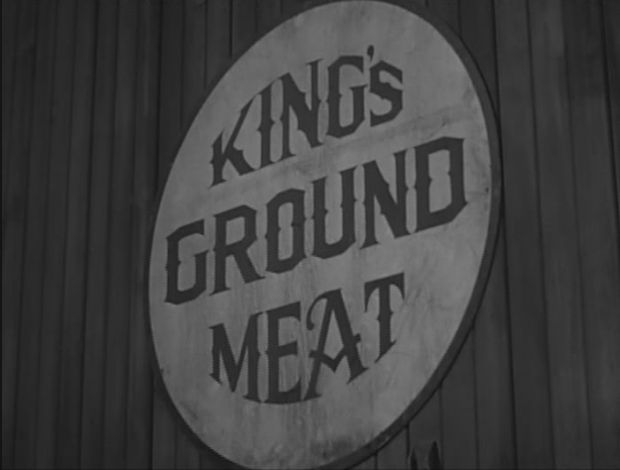
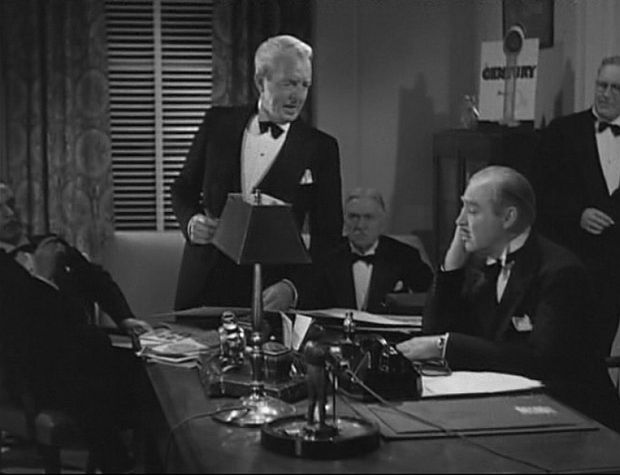
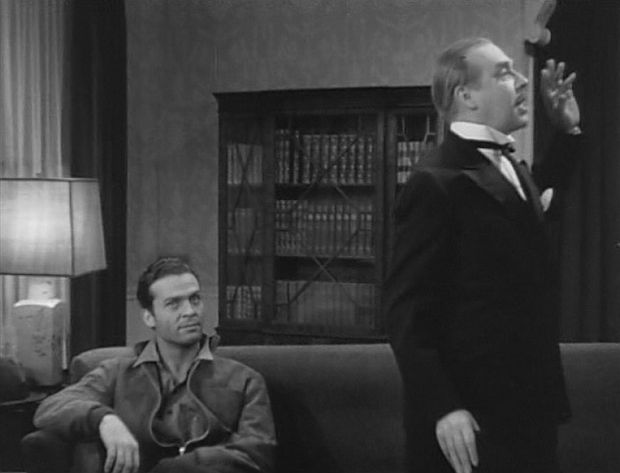
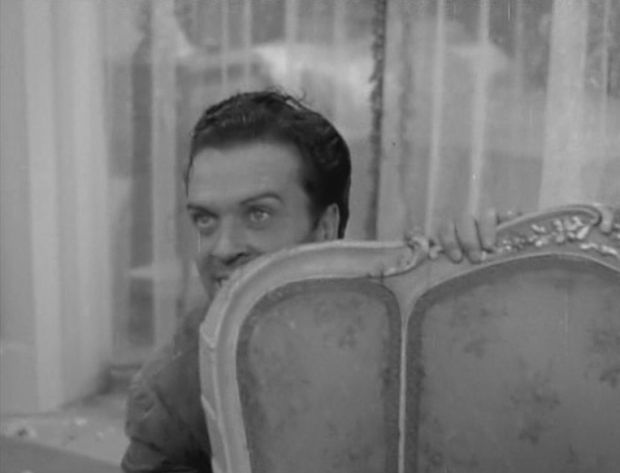
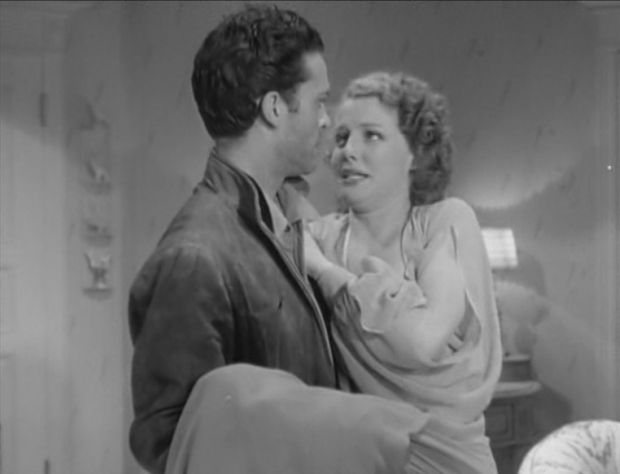
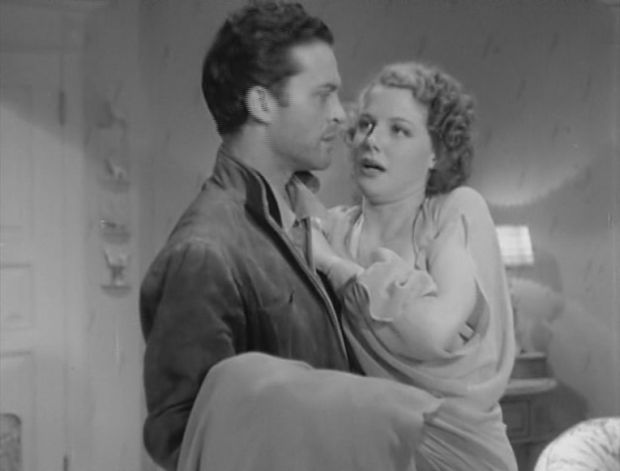
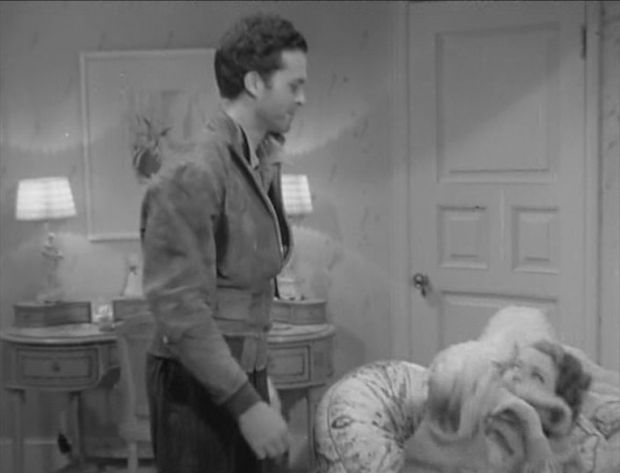
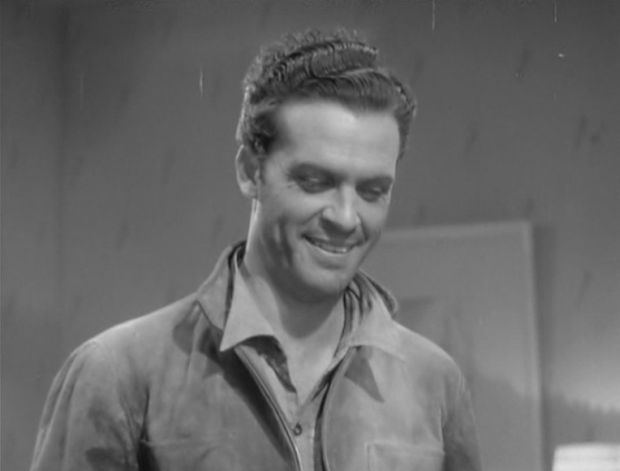
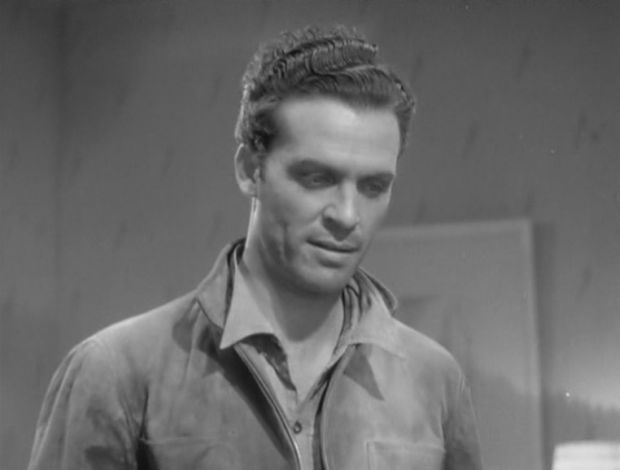
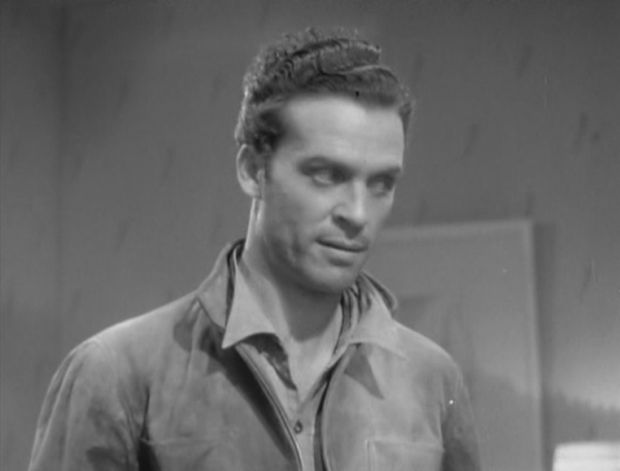
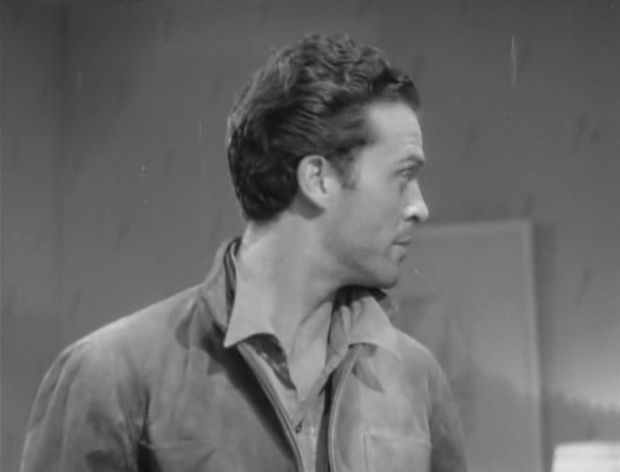
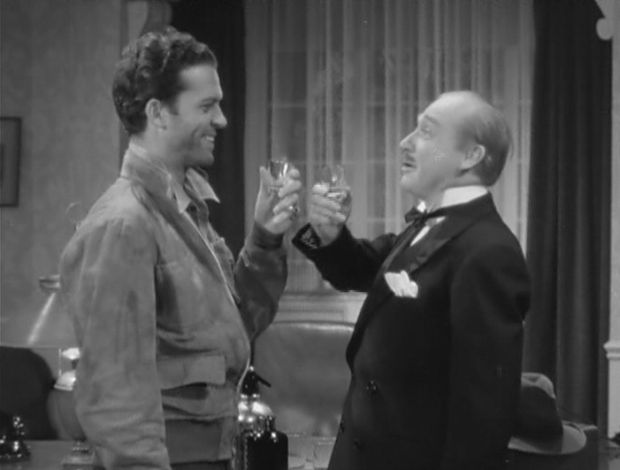
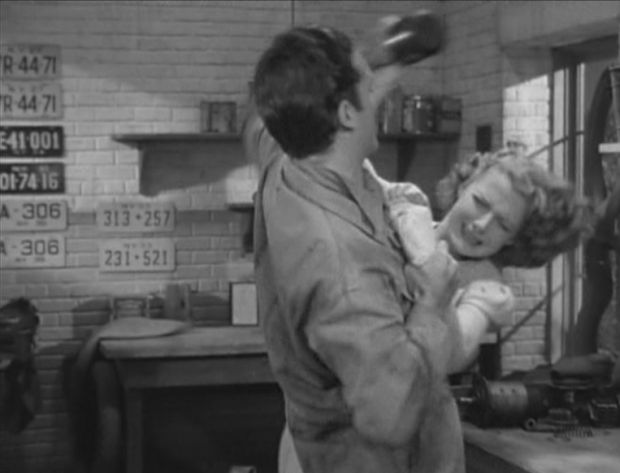
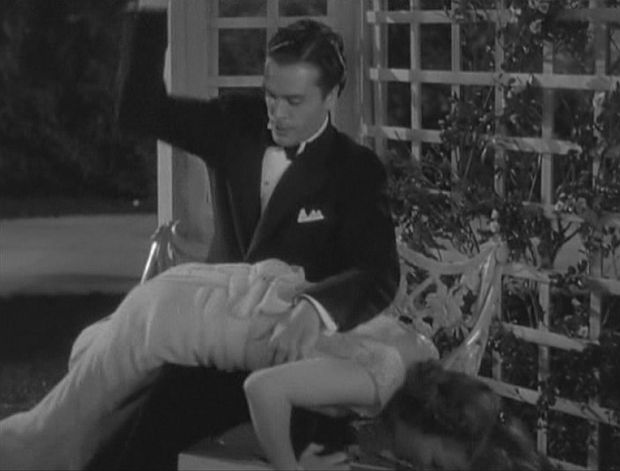
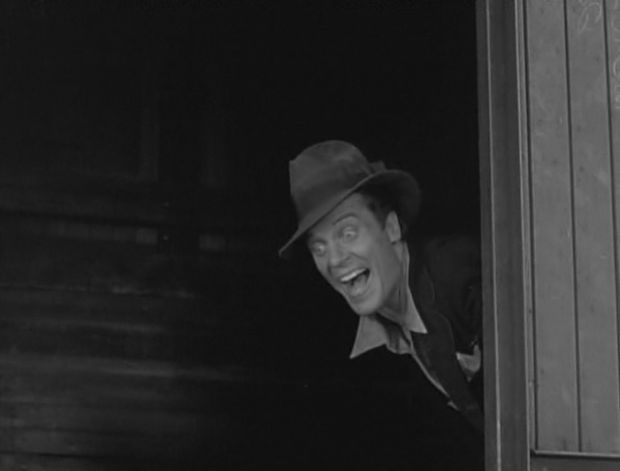
I have to see this just for the William Hopper appearance. The missus and I were on a Perry Mason jag, recently. It’s a shame he disliked acting so much. He was pretty good at it.
He really was. I wasn’t familiar with him in earlier films, when his hair was black and he had a moustache, so I didn’t recognize him at first, He didn’t have the look of a matinee star, but he certainly had as much talent as anyone else in this film. From what I’ve read, his mother Hedda pushed him toward a Hollywood social scene full of insincerity and he didn’t care for it at all.